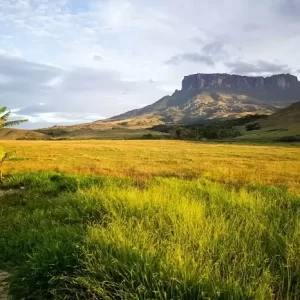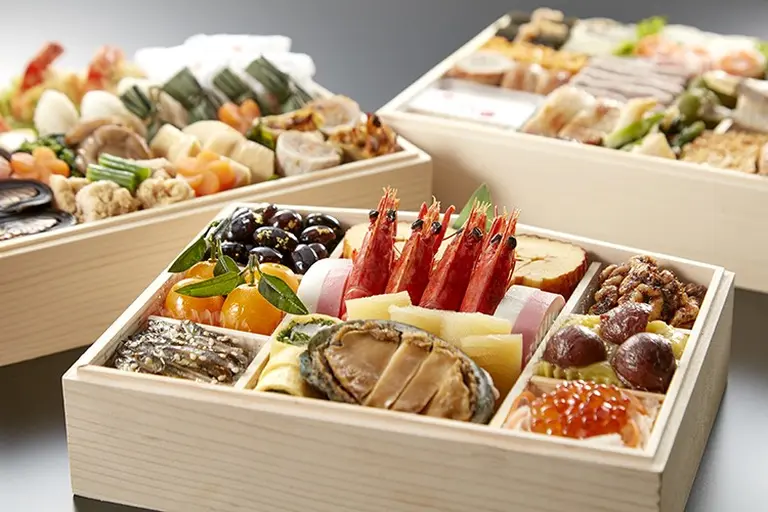Back in 1882, when Australia won its first gold medal at the International Exhibition in Bordeaux, the global wine community began to take notice. Suddenly, the world realized that this land of kangaroos could stand shoulder-to-shoulder with Bordeaux—the sacred birthplace of some of France’s finest wines. And at the heart of this recognition? Australia’s vast, fruit-laden vineyards that stretch as far as the eye can see.
Australia – More Than Just Beaches and Kangaroos
As the sixth-largest country in the world, Australia is widely known for its stunning natural beauty: golden beaches, endless coastlines, and iconic wildlife like the kangaroo, which is so symbolic that it even appears on the country’s coat of arms and coins.
But beyond the glamour of the Sydney Opera House or the boundless outback, vineyards quietly define another side of Australian excellence—its powerful position in the global wine industry.
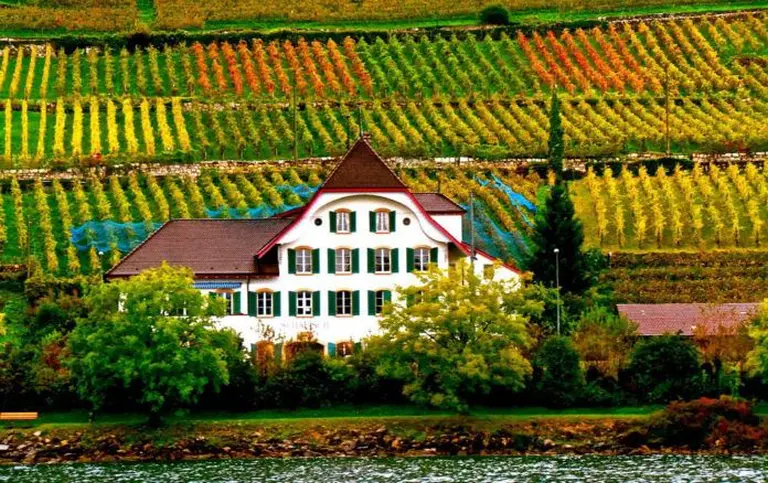
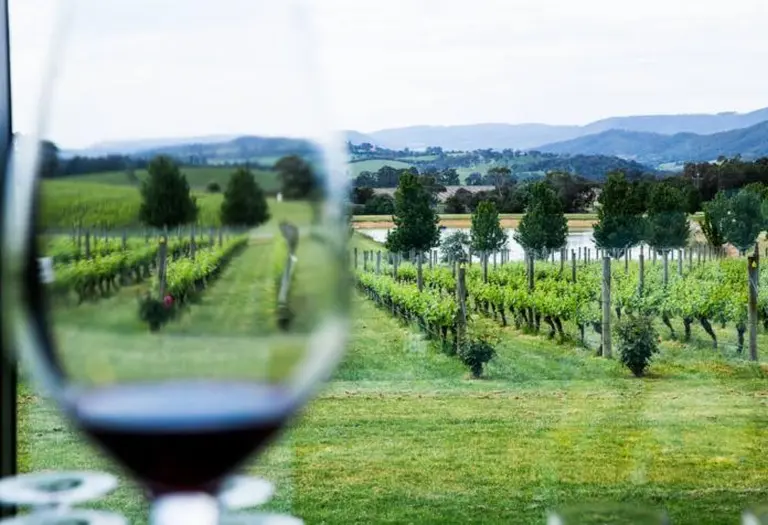
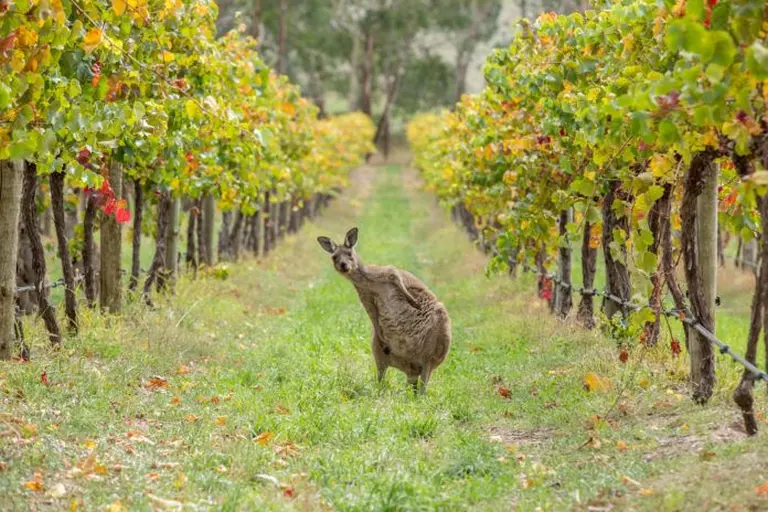
>> Barossa Valley: Where wine dreams come to life
The Soul of Australian Wine – Its Vineyards
Today, Australia’s wine industry is a major global player, and it all starts in its vineyards. These endless rows of grapevines, perfectly aligned across sun-drenched hills and fertile valleys, are not only used for everyday consumption but also drive a billion-dollar export business.
With a history of over 150 years, Australian winemaking has evolved into a sophisticated, world-renowned craft. Each grape variety is responsible for a distinct type of wine—and often, the wine itself carries the name of the grape: Shiraz, Cabernet Sauvignon, Chardonnay, Merlot, Semillon, Pinot Noir, Riesling, and Sauvignon Blanc, to name a few.
Among these, Shiraz and Riesling have become the two most iconic Australian wines, beloved by sommeliers and casual drinkers alike.
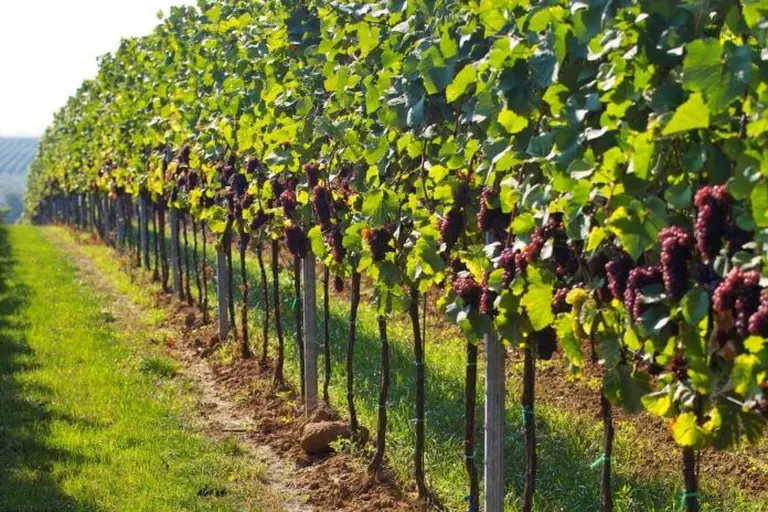
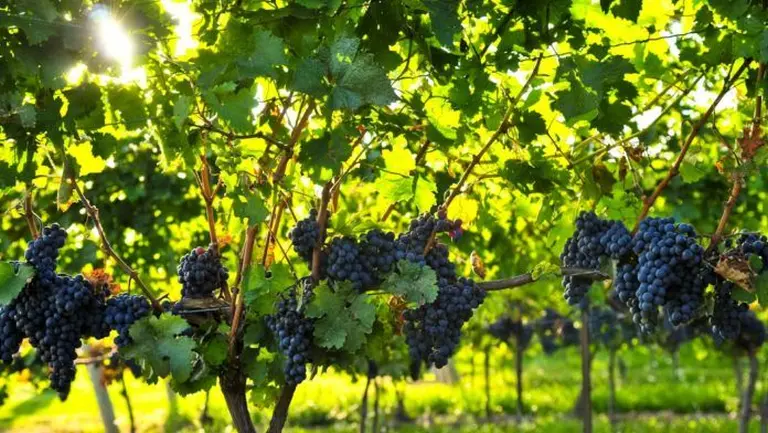
>> Untamed beauty of Kakadu – Australia’s wild northern treasure
Barossa Valley – The Heart of Australian Wine
If there’s one place you can’t miss, it’s the Barossa Valley, located just 70 km northeast of Adelaide. As one of the most famous wine-producing regions in Australia, Barossa is a dream destination for wine lovers. Each year, thousands of tourists flock here to sip fine wines straight from the source and learn about the grapes that made them.
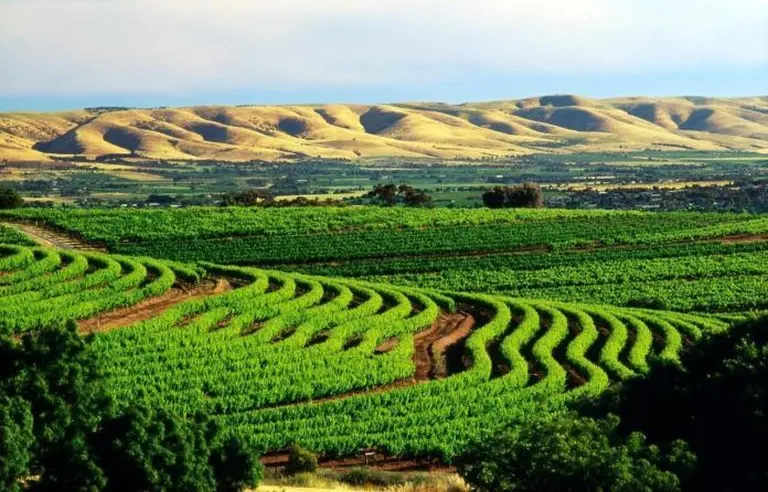
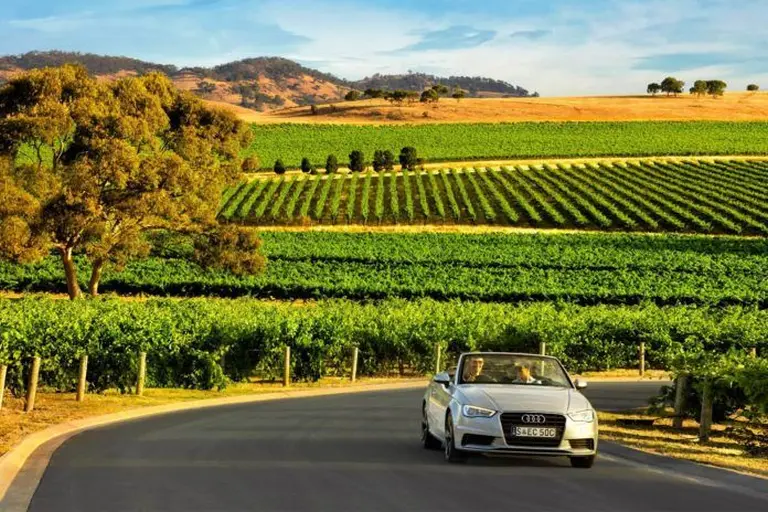
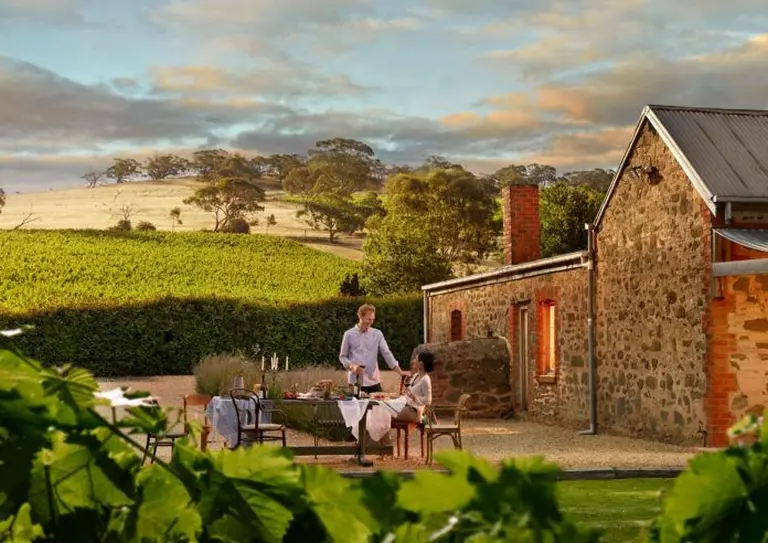
>> Western Australia in Bloom – The wildflower wonderland
A Vineyard Experience Like No Other
Visiting Australia’s vineyards isn’t just about tasting wine—it’s about immersing yourself in the rhythm of nature. The scent of ripe grapes, the breeze through the vines, and the tranquil atmosphere of the countryside create an experience that’s both refreshing and unforgettable.
So, why not trade in your typical vacation of beaches and amusement parks for something different? A vineyard tour in Australia offers beauty, flavor, and serenity—all in one irresistible journey.
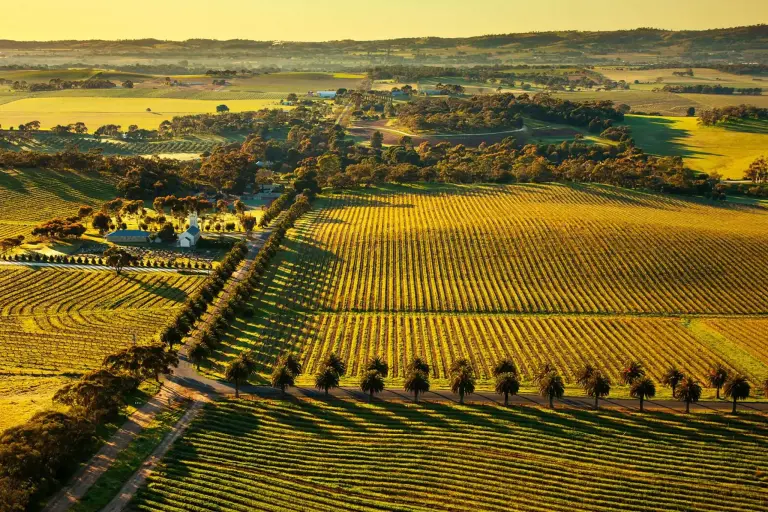
>> Devils Marbles: A stunning natural and spiritual wonder of Australia
FAQ
What makes Australian vineyards special?
Australia is one of the world’s leading wine-producing countries, known for its diverse climates, innovative winemaking, and scenic vineyard landscapes. What makes them truly unique is the combination of:
- Ancient soils and microclimates that produce distinct wine styles
- A relaxed, welcoming wine culture — no snobbery, just great flavors
- Stunning vineyard settings, from coastal cliffs to sunlit valleys
- The opportunity to meet winemakers, tour barrel halls, and enjoy gourmet food pairings
- Whether you’re a casual drinker or a wine enthusiast, there’s something for everyone.
Where are the most famous wine regions in Australia?
Australia boasts over 60 wine regions, but some of the most iconic and widely visited include:
- Barossa Valley (South Australia) – Renowned for bold Shiraz and century-old vines
- Hunter Valley (New South Wales) – Australia’s oldest wine region, known for Semillon
- Yarra Valley (Victoria) – Famous for Pinot Noir and cool-climate Chardonnay
- Margaret River (Western Australia) – Premium Cabernet Sauvignon and world-class beaches
- McLaren Vale (South Australia) – Mediterranean climate producing rich, fruit-forward reds
- Clare Valley & Coonawarra (SA) – Loved for Riesling and terra rossa soils, respectively
- Each region offers a unique wine personality, as well as its own local culture and landscapes.
What types of wine is Australia best known for?
Australia is globally recognized for:
- Shiraz (Syrah) – Especially from Barossa Valley; rich, spicy, and full-bodied
- Chardonnay – From buttery and oaked styles to crisp and elegant versions
- Cabernet Sauvignon – Often structured and long-lasting, especially in Coonawarra
- Sauvignon Blanc & Semillon – Crisp whites from Margaret River and Hunter Valley
- Riesling – Particularly vibrant and dry in Clare Valley
- Pinot Noir – Grown in cooler regions like Yarra Valley and Tasmania
- Thanks to regional diversity, Australia produces both classic wines and innovative blends.
Can I visit vineyards for wine tasting?
Absolutely — in fact, cellar door experiences are a major part of Australia’s wine culture. Most wineries welcome visitors for tastings, which range from:
- Casual walk-in tastings
- Private guided sessions with winemakers
- Food and wine pairings with local produce
- Vineyard tours and picnics among the vines
- Workshops or blending classes for a hands-on experience
- Some wineries even offer scenic helicopter tours, biking routes, or hot air balloon rides over the vines.
Is wine tourism family-friendly?
Many vineyard regions cater to families too! While wine tasting is obviously for adults, lots of wineries offer:
- Open gardens and picnic areas
- Farm animals or wildlife viewing
- Outdoor games or playgrounds
- On-site cafes with non-alcoholic options
- Events like food festivals, art shows, or live music
- It’s a great way to enjoy the countryside, even if wine isn’t your main focus.
When is the best time to visit vineyards in Australia?
- Autumn (March–May): Grape harvest season — ideal for seeing vineyards in full action
- Spring (September–November): Blooming vines and wildflowers, perfect weather for outdoor tastings
- Summer (December–February): Lush green landscapes, lots of events — but can be hot in inland areas
- Winter (June–August): Cosy cellar doors, fireplaces, and rich reds — quieter and intimate
- Each season offers its own charm, depending on the region and your interests.
Do I need to book wine tastings in advance?
In popular regions like Barossa or Yarra Valley, booking is highly recommended, especially on weekends or holidays. While smaller cellar doors may accept walk-ins, many have moved to pre-booked tasting sessions to ensure a more personal experience.
Can I stay at a vineyard?
Yes! Many Australian wineries now offer luxury vineyard accommodation — think boutique cottages, eco-lodges, or vineyard-view suites. Staying onsite allows guests to wake up among the vines, enjoy sunrise strolls, or indulge in a glass of wine without worrying about driving.
Are there wine trails or tours available?
Definitely. Most regions offer wine trails, where you can follow curated routes through top cellar doors, local eateries, and artisan producers. You can also book:
- Self-drive itineraries
- Guided minivan tours
- Luxury limo or helicopter experiences
- Cycling wine trails (common in Clare Valley and Mudgee)
- Touring with a guide also means no need for a designated driver, so you can fully enjoy tastings.
Can I buy wine and have it shipped home?
Yes, most wineries allow you to purchase bottles on-site and many offer international shipping, especially to countries like the USA, UK, Japan, and parts of Southeast Asia. It’s a great way to take a piece of your vineyard adventure home.
Final Thoughts: Australia’s vineyards are more than places to drink wine — they’re gateways to landscape, history, local culture, and world-class craftsmanship. Whether you’re sipping a Shiraz in Barossa, tasting Riesling in Clare, or watching the sun set over the vines in Margaret River, every glass tells a story.



